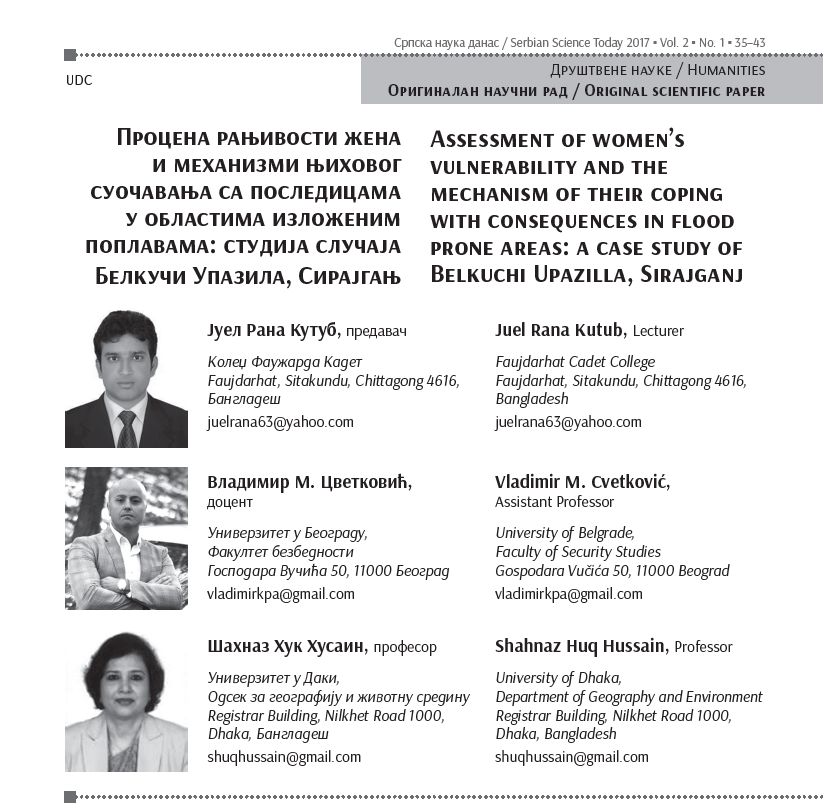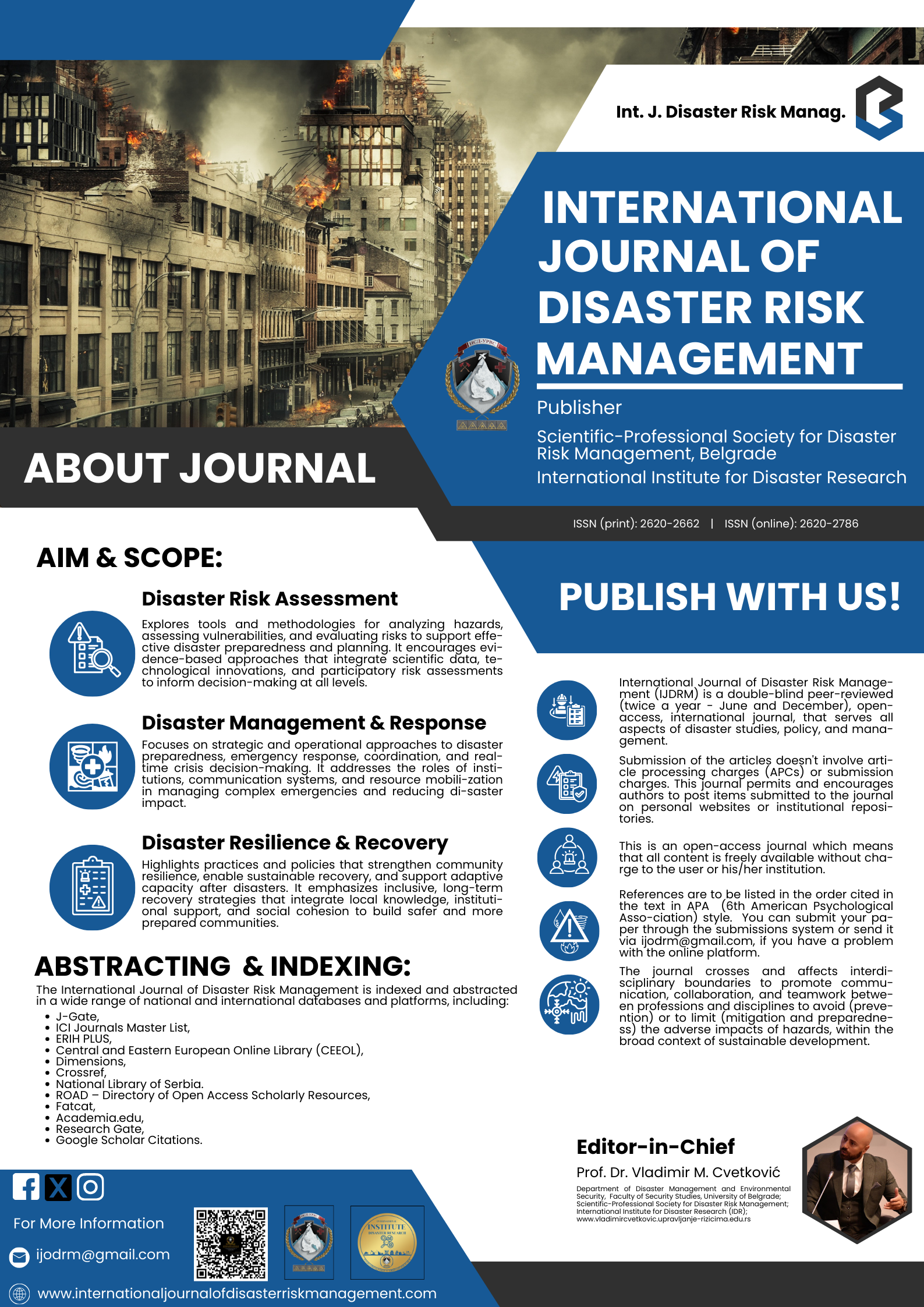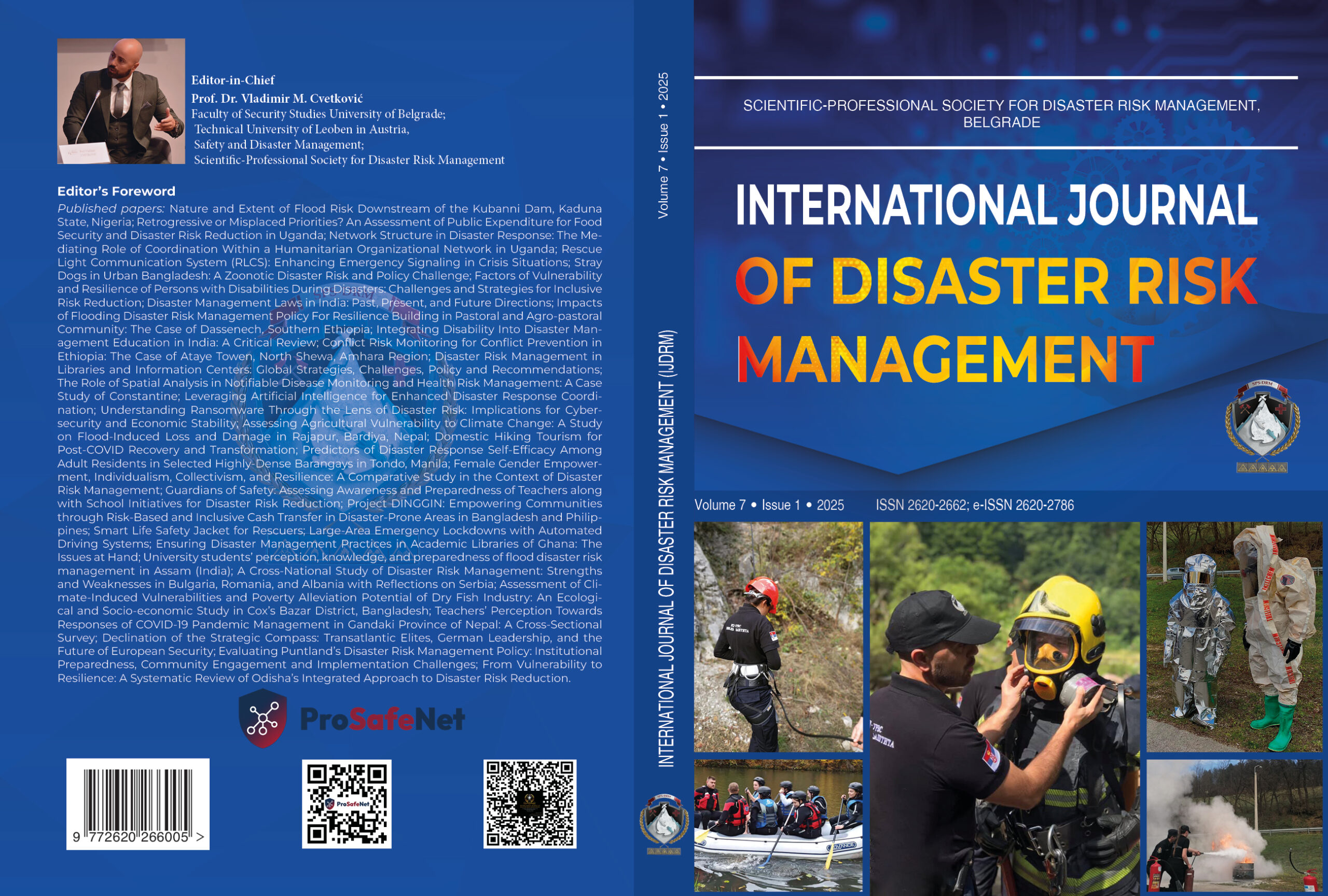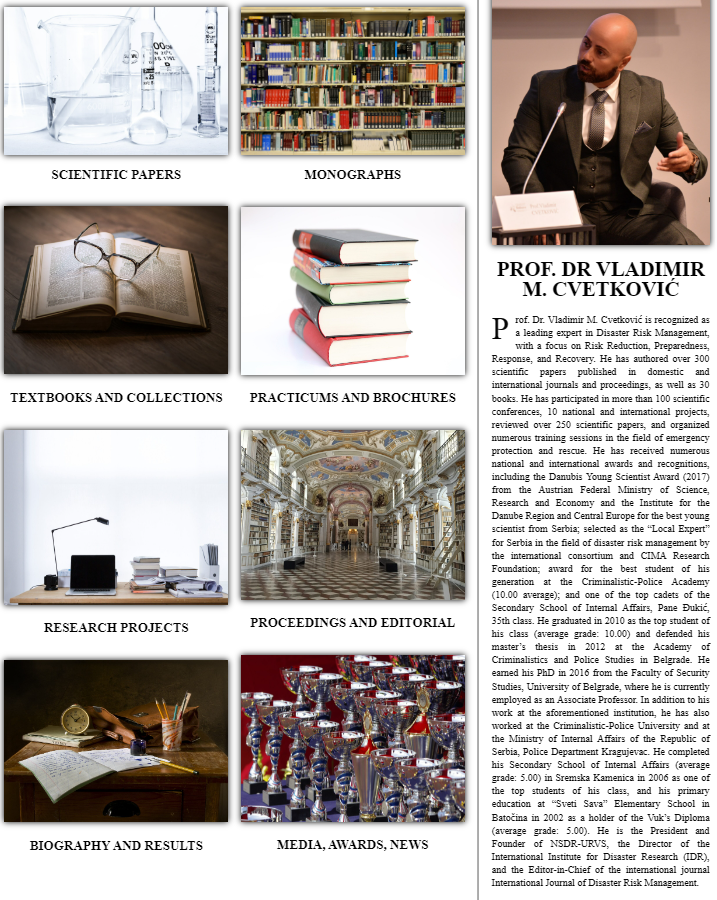Assessment of women’s vulnerability and their coping mechanism living in flood prone areas: A case study of Belkuchi Upazila, Sirajganj
Kutub, J. R., Cvetković, V. M., & Huq, S. (2017). Assessment of women’s vulnerability and their coping mechanism living in flood prone areas: A case study of Belkuchi Upazila, Sirajganj. Serbian Science Today, 2(1), 35–43. UDC Друштвене науке / Humanities Оригиналан научни рад / Original scientific paper Процена рањивости жена и механизми њиховог суочавања са последицама у областима изложеним поплавама: студија случаја Белкучи Упазила, Сирајгањ Assessment of women’s vulnerability and the mechanism of their coping with consequences in flood prone areas: a case study of Belkuchi Upazilla, Sirajganj Јуел Рана Кутуб, предавач Колеџ Фаужарда Кадет Faujdarhat, Sitakundu, Chittagong 4616, Бангладеш juelrana63@yahoo.com Владимир М. Цветковић, доцент Универзитет у Београду, Факултет безбедности Господара Вучића 50, 11000 Београд vladimirkpa@gmail.com Шахназ Хук Хусаин, професор Универзитет у Даки, Одсек за географију и животну средину Registrar Building, Nilkhet Road 1000, Dhaka, Бангладеш shuqhussain@gmail.com Juel Rana Kutub, Lecturer Faujdarhat Cadet College Faujdarhat, Sitakundu, Chittagong 4616, Bangladesh juelrana63@yahoo.com Vladimir M. Cvetković, Assistant Professor University of Belgrade, Faculty of Security Studies Gospodara Vučića 50, 11000 Beograd vladimirkpa@gmail.com Shahnaz Huq Hussain, Professor University of Dhaka, Department of Geography and Environment Registrar Building, Nilkhet Road 1000, Dhaka, Bangladesh shuqhussain@gmail.com Рад примљен: 16.12.2016. Paper received: 12/16/2016 Рад прихваћен: 18.1.2017. Paper accepted: 1/18/2017 Abstract Women are more vulnerable during disastrous situations compared to their male counterparts. It was noted in many studies that among all oth- er natural disasters, flood causes immense sufferings of women due to the low standard of living conditions and poor institutional arrangement in flood prone areas of Bangladesh. The geographical location and low elevation of land with numerous rivers make Bangladesh really vulnerable. The focus of this research is to explore women’s vulnerability at the community level and ways of coping with the consequences of floods. Both secondary and prima- ry data have been used […]
Read more




